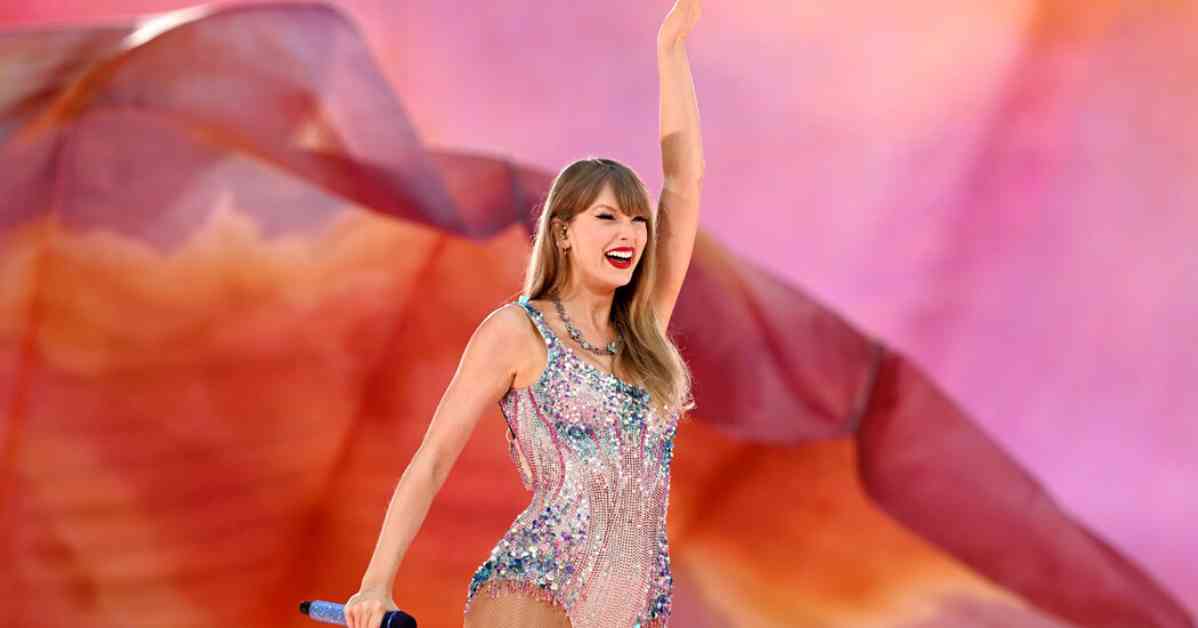Former President Donald J. Trump has once again stirred controversy with his recent use of artificial intelligence (A.I.) images to falsely suggest that music icon Taylor Swift has endorsed him. The move comes in the midst of Trump’s ongoing feud with Swift, who publicly endorsed Joseph R. Biden Jr. over him during the 2020 election.
Trump’s latest attempt to capitalize on Swift’s popularity involved sharing A.I.-generated images on his social media platform, Truth Social. One of the images depicted Swift dressed as Uncle Sam, with the caption “Taylor Wants You to Vote for Donald Trump.” Another image showed a group of young women wearing “Swifties for Trump” T-shirts. While one of the images was labeled as “satire,” Trump seemed to eagerly embrace the implication of Swift’s endorsement, writing, “I accept” in response to the images.
Swift, who has remained neutral in the current election cycle, did not respond immediately to requests for comment on the matter. However, it is clear that the singer has not endorsed Trump, and her silence on the issue speaks volumes.
The backlash against Trump’s misleading use of A.I. images to imply Swift’s endorsement was swift and fierce. Democrats, including Representative Eric Swalwell of California, were quick to condemn Trump’s actions, predicting that it would ultimately backfire on him.
In the age of advanced technology and social media manipulation, it is crucial for the public to remain vigilant and discerning when consuming information online. Trump’s deceptive tactics serve as a stark reminder of the dangers of misinformation and the importance of verifying sources before accepting any claims at face value.
The Ethics of A.I. Manipulation
The use of artificial intelligence to create misleading images for political gain raises serious ethical concerns. While A.I. technology has the potential to revolutionize various industries, including media and marketing, its misuse for deceptive purposes undermines the integrity of information dissemination.
In the case of Trump’s A.I. images of Taylor Swift, the manipulation of visuals to imply a false endorsement crosses a dangerous line. This tactic not only deceives the public but also exploits the trust and reputation of individuals like Swift for personal and political gain.
The ethical implications of A.I. manipulation in the realm of politics are significant. As technology continues to advance, it is essential for policymakers and the public to establish clear guidelines and regulations to prevent the abuse of A.I. for deceptive purposes.
The Power of Celebrity Endorsements
Celebrity endorsements have long been a staple of political campaigns, with famous figures lending their star power to candidates in hopes of influencing public opinion. However, the use of A.I. to fabricate endorsements blurs the line between reality and fiction, casting doubt on the authenticity of celebrity support.
In the case of Taylor Swift, her decision to endorse Joe Biden in the 2020 election was a significant moment that highlighted her political influence and values. By contrast, Trump’s attempt to co-opt Swift’s image for his own purposes not only disrespects her autonomy but also undermines the credibility of genuine celebrity endorsements.
The power of celebrity endorsements lies in their authenticity and alignment with the values and beliefs of both the celebrity and the candidate. When endorsements are fabricated or manipulated, they lose their impact and become nothing more than deceptive propaganda.
The Importance of Media Literacy
In a world where misinformation and disinformation run rampant, media literacy has never been more critical. The ability to discern fact from fiction, truth from manipulation, is essential for individuals to make informed decisions and resist the influence of deceptive tactics like Trump’s A.I. images.
By developing strong media literacy skills, individuals can better navigate the complex landscape of digital information and identify false narratives and propaganda. Educating the public on the dangers of misinformation and the importance of verifying sources is key to combatting the spread of deceptive content.
In the case of Trump’s misleading use of A.I. images to imply Taylor Swift’s endorsement, media literacy is the first line of defense against manipulation. By questioning the authenticity of such claims and seeking out reliable sources, individuals can protect themselves from falling victim to deceptive tactics.
As technology continues to evolve and shape the way information is created and disseminated, media literacy will be more important than ever in safeguarding the truth and upholding the integrity of public discourse. It is up to each individual to arm themselves with the knowledge and skills needed to navigate the digital landscape responsibly and ethically.














